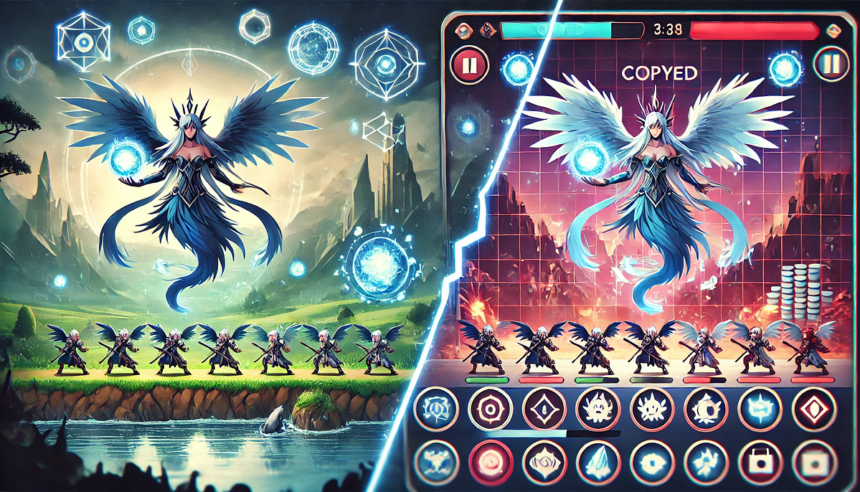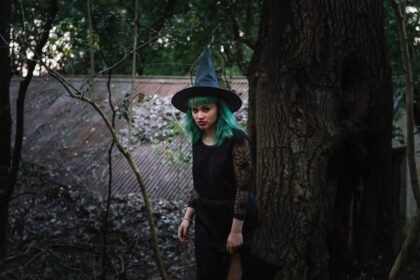Introduction
In the world of gaming, originality is king. Players crave unique experiences that transport them to imaginative realms filled with creativity and innovation. However, not all game concepts are protected from imitation. Enter the Spiritus Trainer controversy—a case that raises questions about what it means to truly create in an industry rife with copying and cloning.
As players enjoy their time honing skills and exploring worlds within Spiritus Trainer, a shadow looms over its success: allegations of game copycatting have sparked heated debates among developers and fans alike. What happens when inspiration veers into imitation? Join us as we delve deep into this captivating saga surrounding the Spiritus Trainer game copy debate—and uncover how it impacts both creators and gamers alike.
What is Spiritus Trainer?
Spiritus Trainer is an innovative gaming experience that merges training with adventure. It offers players a unique blend of physical and mental challenges, engaging them in various tasks that test their skills.
At its core, Spiritus Trainer focuses on personal development. Players navigate through immersive worlds while completing objectives designed to enhance cognitive abilities and reflexes. This dual approach not only entertains but also encourages growth.
The game features captivating graphics and soundscapes, creating an atmosphere that’s both stimulating and enjoyable. As players progress, they unlock new levels filled with increasingly complex challenges.
What sets Spiritus Trainer apart from traditional games is its emphasis on self-improvement wrapped in a fun package. The interactive nature captivates users, turning each session into an opportunity for exploration and learning like no other game can offer.
The Game Copy Controversy
The gaming industry is rife with disputes over originality. The Spiritus Trainer game copy controversy highlights this issue vividly.
When one game mirrors another too closely, questions arise about creativity and ethics. Players often feel deceived when they encounter clones of beloved titles. They expect innovation, not imitation.
Developers face the challenge of safeguarding their ideas while inspiring others. Yet, when a new title releases that feels strikingly similar to an existing one, it stirs up debates on intellectual property rights.
Critics argue that such copies dilute the essence of gaming culture. Fans crave unique experiences rather than carbon copies of what they’ve already played.
This ongoing dialogue reflects broader concerns in entertainment about ownership and artistic integrity. As technology evolves, so does the landscape for both creators and consumers alike.
The Impact of Game Cloning
Game cloning can significantly alter the landscape of gaming. When developers replicate a popular game, it often leads to confusion among players. They may struggle to distinguish between original titles and their clones.
This phenomenon stifles innovation. Creators may feel discouraged from developing new ideas if they believe their work could be easily copied. As a result, we risk losing unique concepts that push the boundaries of gameplay.
Moreover, game cloning affects market dynamics. Original titles may suffer financially when clones gain traction, leading to decreased funding for future projects. This cycle ultimately impacts quality as studios cut back on resources in response to lost revenue.
Consumer trust is also at stake. Players might become skeptical about investing in new games if they fear being met with subpar replicas instead of fresh experiences designed by passionate creators.
Protecting Original Game Concepts
Protecting original game concepts is vital in the ever-evolving gaming industry. Developers invest countless hours into crafting unique experiences. Safeguarding these ideas ensures that creativity flourishes rather than stagnates.
Copyrights and trademarks serve as essential tools for protection. They provide legal avenues to defend against unauthorized copies or adaptations of a game concept. By registering their work, creators can assert ownership and prevent infringement effectively.
Community awareness also plays a crucial role in this process. Gamers often rally behind original titles, lending support to developers facing copycat challenges. This camaraderie fosters an atmosphere where innovation thrives.
Furthermore, collaboration among developers can strengthen protections across the board. Sharing knowledge about best practices helps everyone understand how to guard their creations better, ensuring that originality remains at the forefront of gaming culture.
Conclusion
The landscape of gaming continues to evolve. With innovations come challenges, particularly regarding originality and intellectual property.
Spiritus Trainer has sparked conversations that go beyond mere gameplay. It raises important questions about creativity in the industry.
While game cloning might offer short-term gains for some, it undermines the hard work of original creators. The essence of gaming lies in unique experiences and fresh ideas.
As players and developers, we must advocate for innovation rather than imitation. Supporting original concepts not only enriches our experience but fosters a vibrant community.
The future of gaming depends on how we address these issues today. Let’s celebrate originality, encourage new voices, and protect what makes games truly special.
FAQs
Q: What is the Spiritus Trainer game copy controversy about?
A: The controversy revolves around allegations that some games have closely emulated the mechanics and themes of Spiritus Trainer. This has sparked discussions within the gaming community regarding originality and ethical practices in game development.
Q: How does cloning affect original game creators?
A: Cloning can significantly impact original developers by diluting their market presence, causing potential revenue loss, and making it difficult for them to stand out. It raises questions about creativity versus imitation in an industry driven by innovation.
Q: Are there legal protections against game copying?
A: Yes, there are various forms of intellectual property protection available, such as copyright laws and trademarks. However, enforcing these rights can be challenging in a fast-paced digital environment where ideas spread quickly.
Q: What should gamers consider when encountering similar games?
A: Gamers may want to assess how much innovation or originality exists in a title compared to its predecessors. Understanding the nuances between homage and outright copying can enhance one’s appreciation for unique gameplay experiences.
Q: Is it possible for new games to inspire others without being copies?
A: Absolutely! Inspiration is part of creative processes across all mediums. New titles can bring fresh ideas while honoring past influences without crossing into replication territory.
These questions highlight essential aspects surrounding spiritus trainer game copy issues that resonate with both players and developers alike.








